ACC 2023: Late-Breaking Science Video Collection
Published: 06 March 2023
-
Views:
 5912
5912
-
Likes:
 7
7
-
Views:
 5912
5912
-
Likes:
 7
7
-
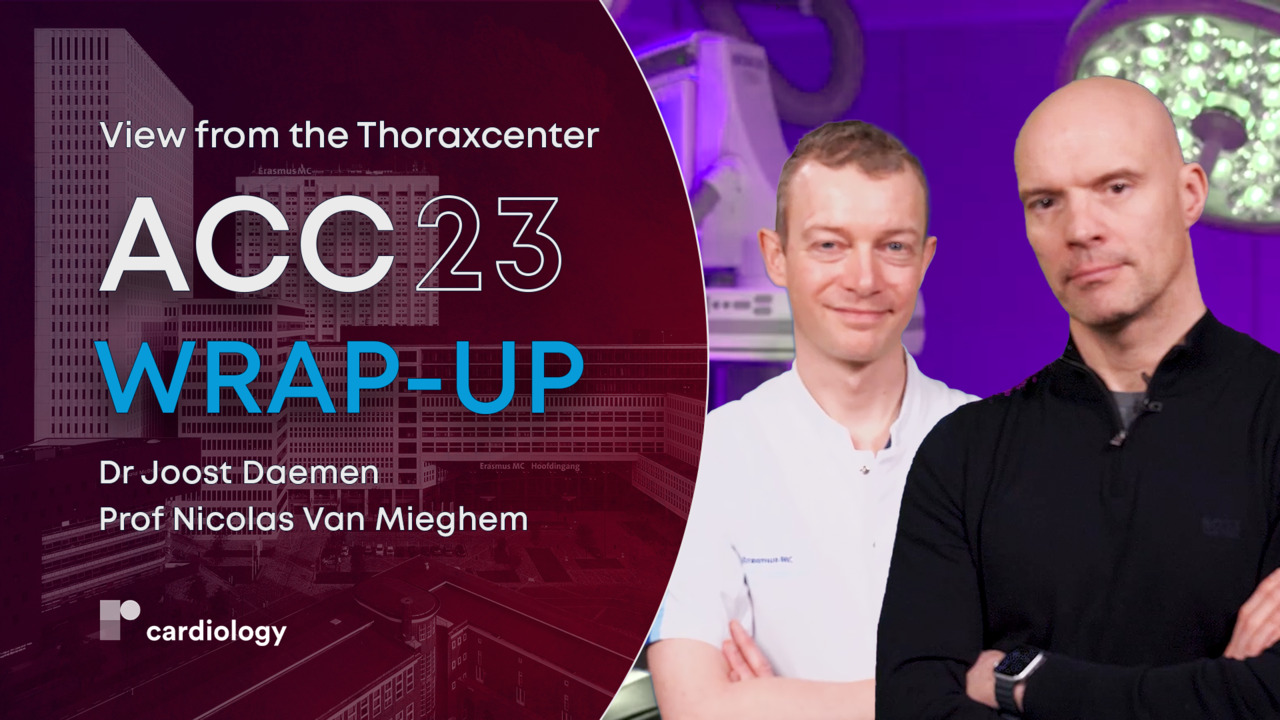 33m 36sPart 3 | Session 1 ACC.23 Late-breaking Science Wrap Up
33m 36sPart 3 | Session 1 ACC.23 Late-breaking Science Wrap Up -
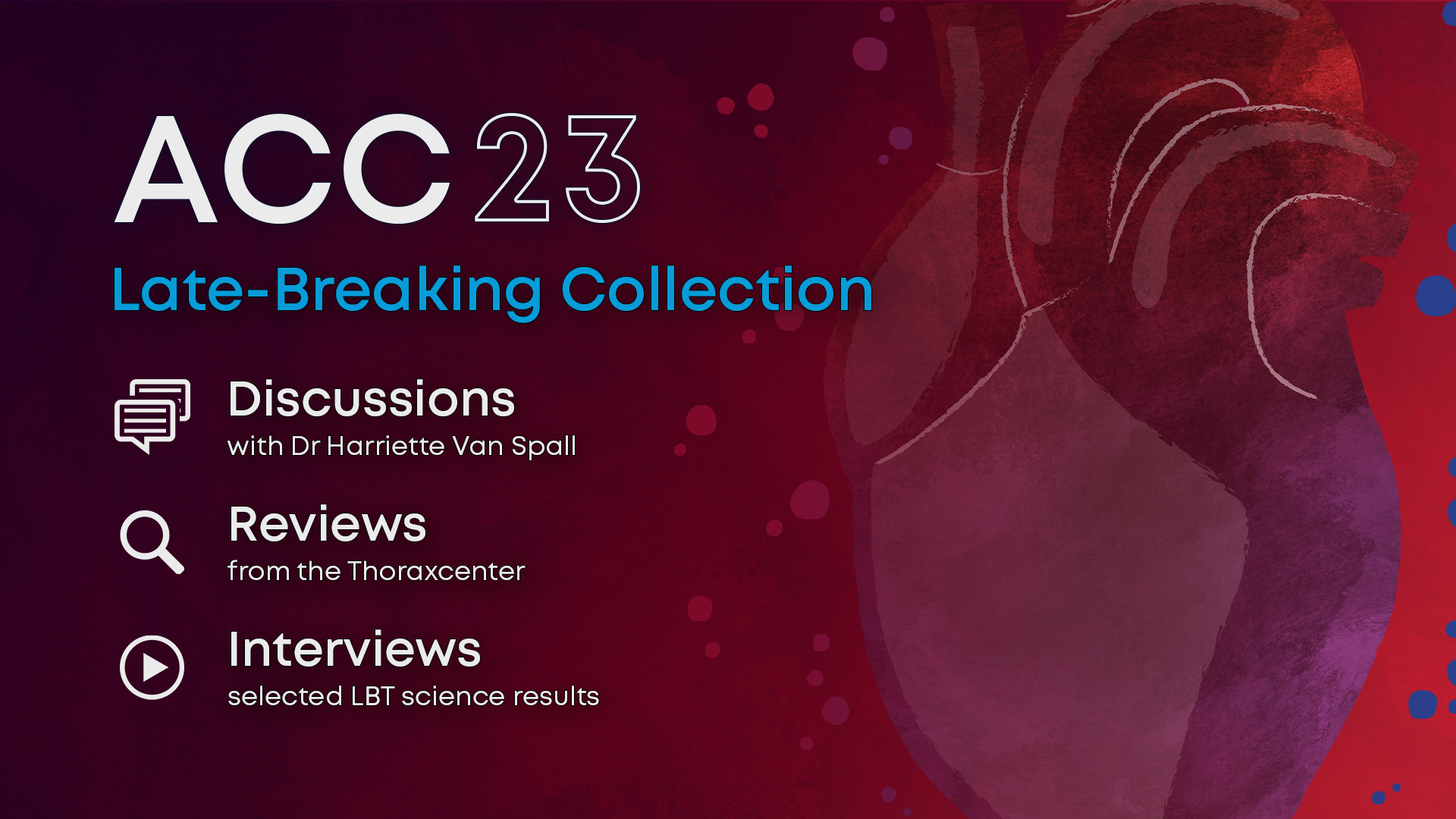 22m 4sPart 3 | Session 2 What's Hot at ACC.23? Late-breaking Science Preview
22m 4sPart 3 | Session 2 What's Hot at ACC.23? Late-breaking Science Preview
-
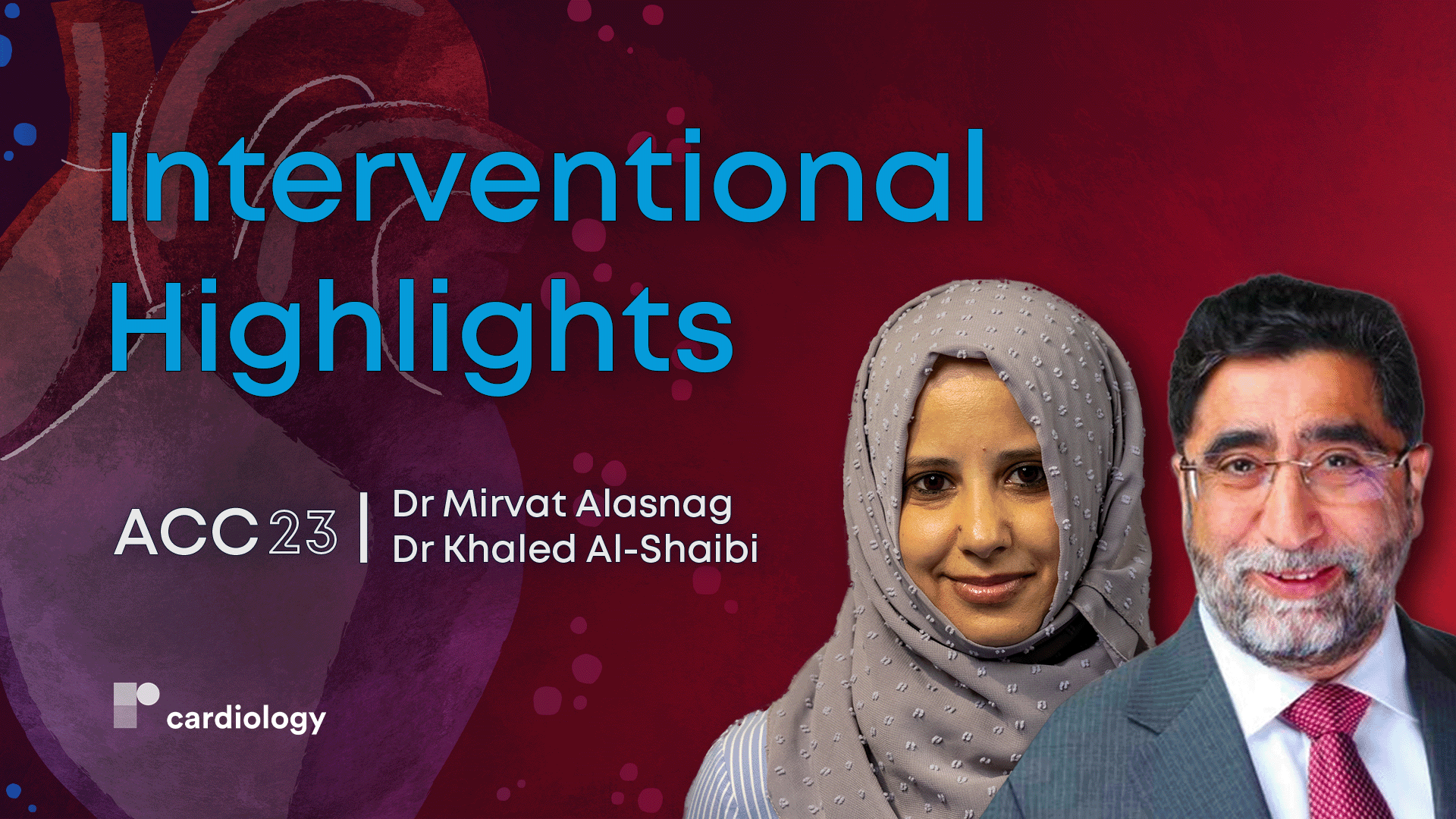 16m 22s
16m 22s -
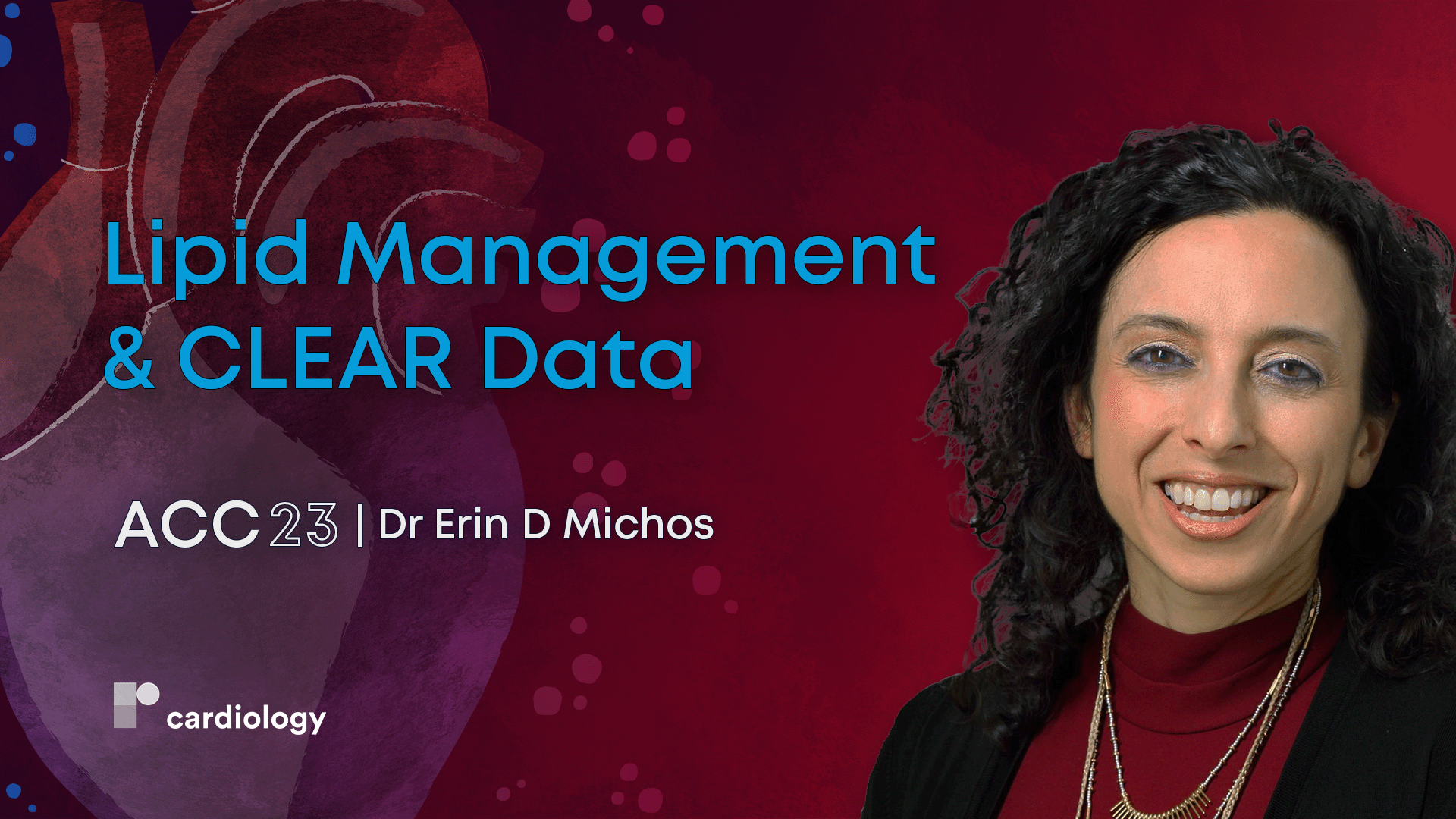 5m 34sPart 4 | Session 2 Lipid Management & the CLEAR Trial with Dr Erin Michos
5m 34sPart 4 | Session 2 Lipid Management & the CLEAR Trial with Dr Erin Michos -
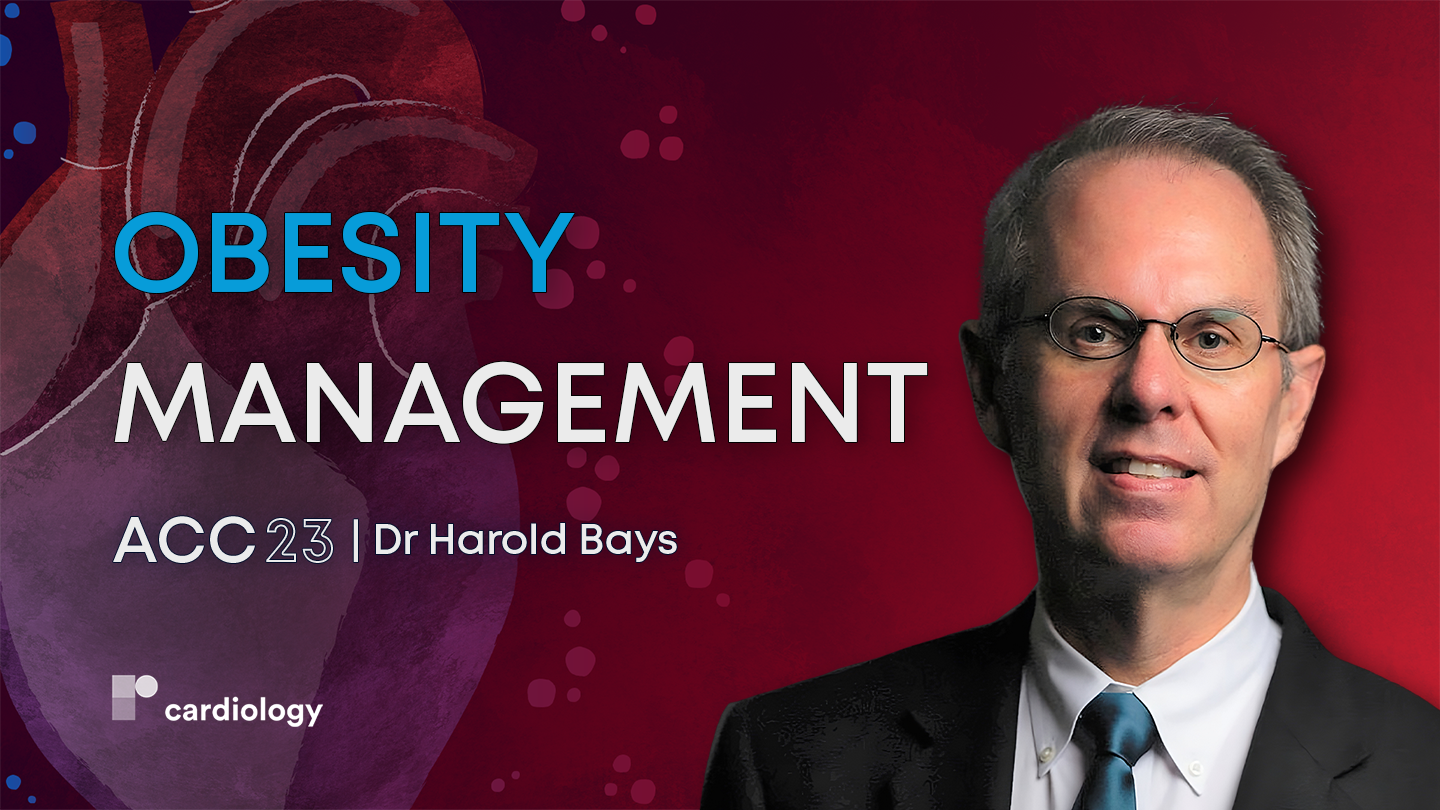 17m 7sPart 4 | Session 3 Obesity Management Strategies in 2023 with Dr Harold Bays
17m 7sPart 4 | Session 3 Obesity Management Strategies in 2023 with Dr Harold Bays -
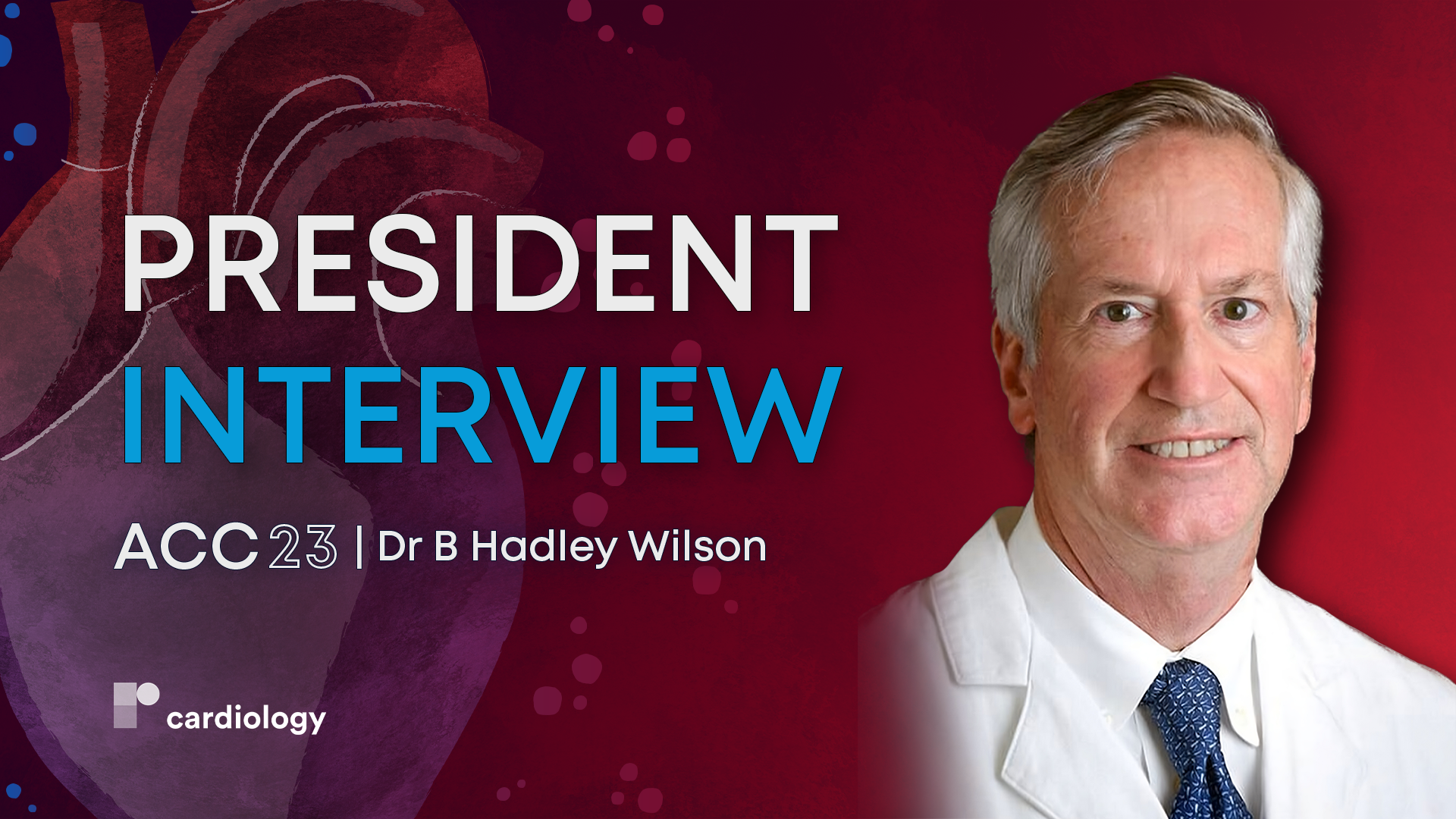 15m 9sPart 4 | Session 4 ACC.23 President Interview with Dr B Hadley Wilson
15m 9sPart 4 | Session 4 ACC.23 President Interview with Dr B Hadley Wilson
-
 1m 17sPart 5 | Session 1 Dr Akowuah: Cardiovascular Research & Message for Early-Career Researchers
1m 17sPart 5 | Session 1 Dr Akowuah: Cardiovascular Research & Message for Early-Career Researchers -
 1m 22sPart 5 | Session 2 Dr Kini: Asking Questions & Her Motivation to Do Research on Plaque
1m 22sPart 5 | Session 2 Dr Kini: Asking Questions & Her Motivation to Do Research on Plaque -
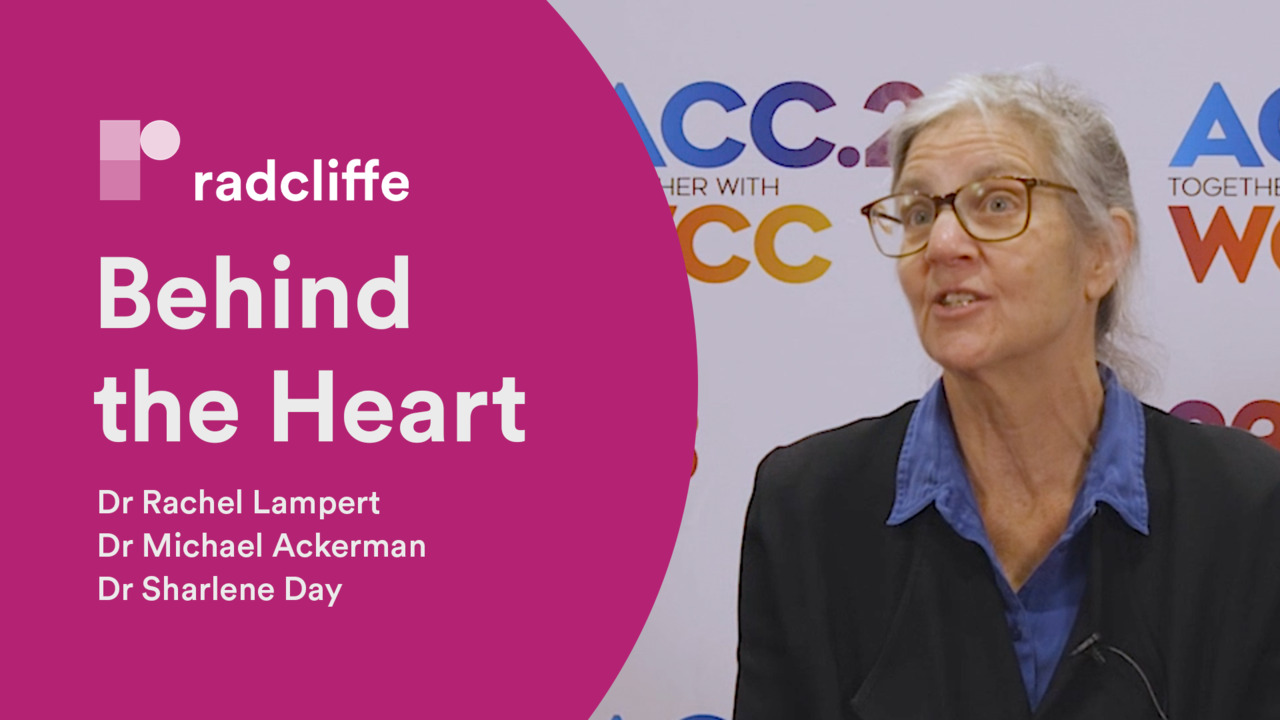 5m 29s
5m 29s -
 1m 21sPart 5 | Session 4 Dr Verma: Passion for Electrophysiology & His Advice For Young Researchers
1m 21sPart 5 | Session 4 Dr Verma: Passion for Electrophysiology & His Advice For Young Researchers -
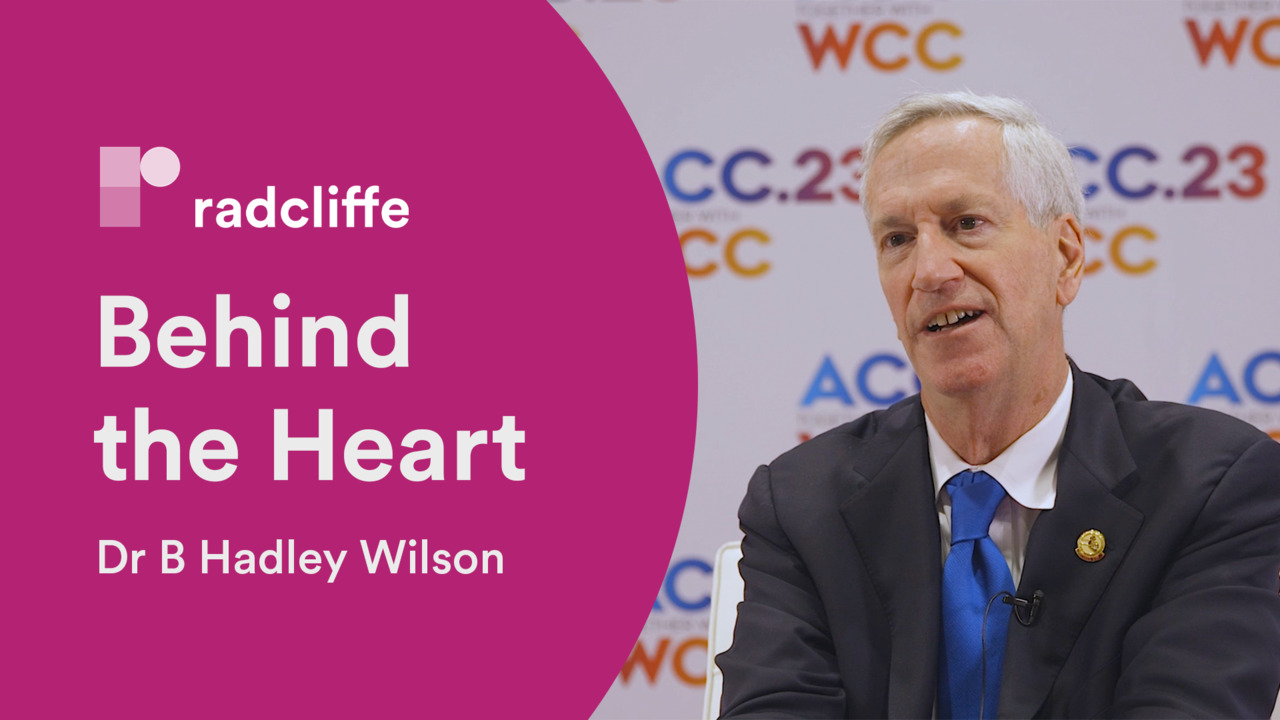 3m 33s
3m 33s -
 31sPart 5 | Session 6 Dr Hahn: Innovative Areas of Cardiovascular Science in 2023
31sPart 5 | Session 6 Dr Hahn: Innovative Areas of Cardiovascular Science in 2023 -
 1m 33sPart 5 | Session 7 Dr Forrest: Structural Heart Innovations and Advice to Young Researchers
1m 33sPart 5 | Session 7 Dr Forrest: Structural Heart Innovations and Advice to Young Researchers
-
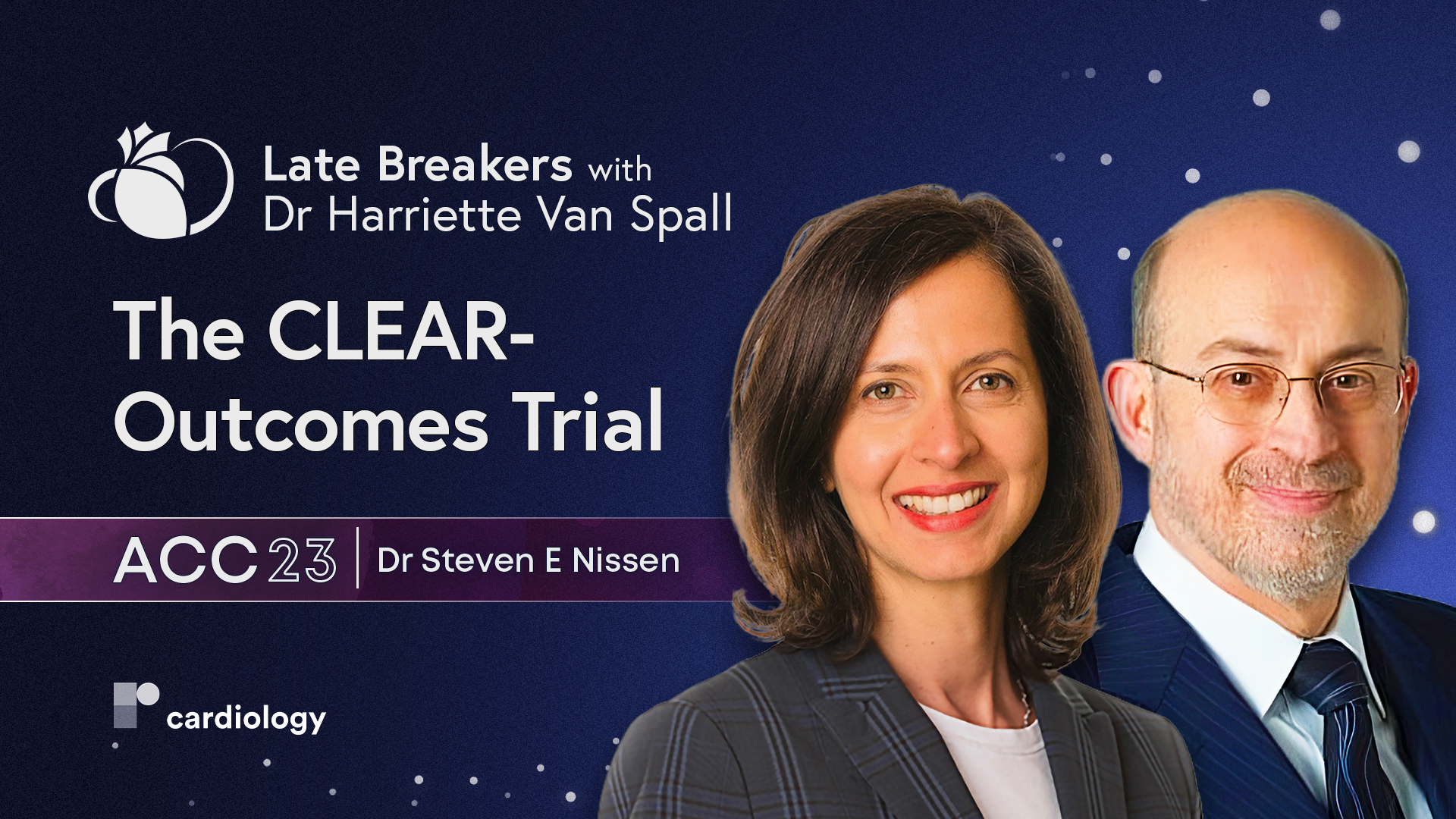 16m 12sPart 1 | Session 1 The CLEAR-Outcomes Trial with Dr Harriette Van Spall & Dr Steven Nissen Harriette Van Spall, Steven E Nissen
16m 12sPart 1 | Session 1 The CLEAR-Outcomes Trial with Dr Harriette Van Spall & Dr Steven Nissen Harriette Van Spall, Steven E Nissen
-
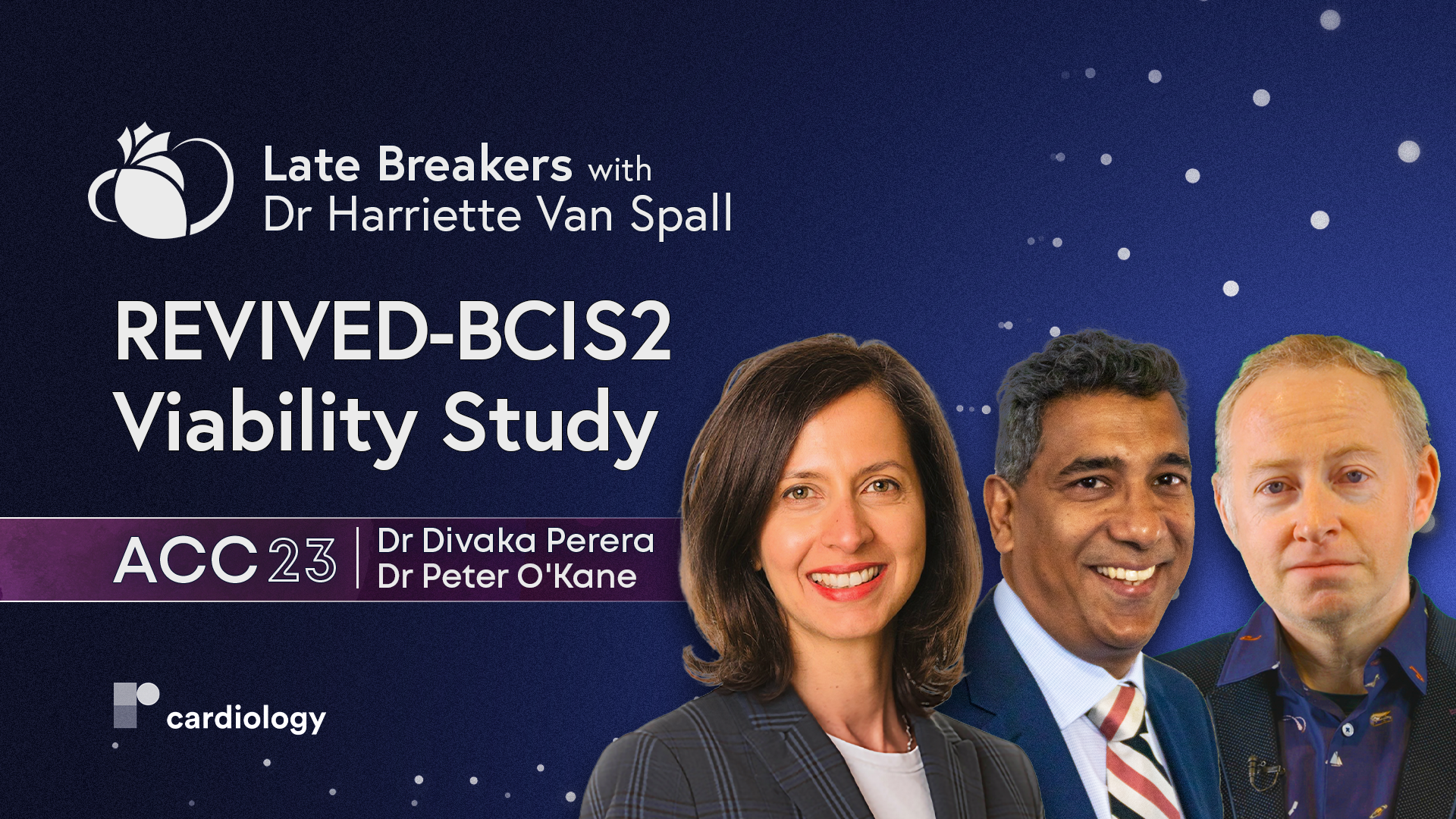 16m 24sPart 1 | Session 2 The REVIVED-BCIS2 Viability Study with Dr Harriette Van Spall, Dr Divaka Perera & Dr Peter O'Kane Harriette Van Spall, Divaka Perera, Peter O’Kane
16m 24sPart 1 | Session 2 The REVIVED-BCIS2 Viability Study with Dr Harriette Van Spall, Dr Divaka Perera & Dr Peter O'Kane Harriette Van Spall, Divaka Perera, Peter O’Kane
-
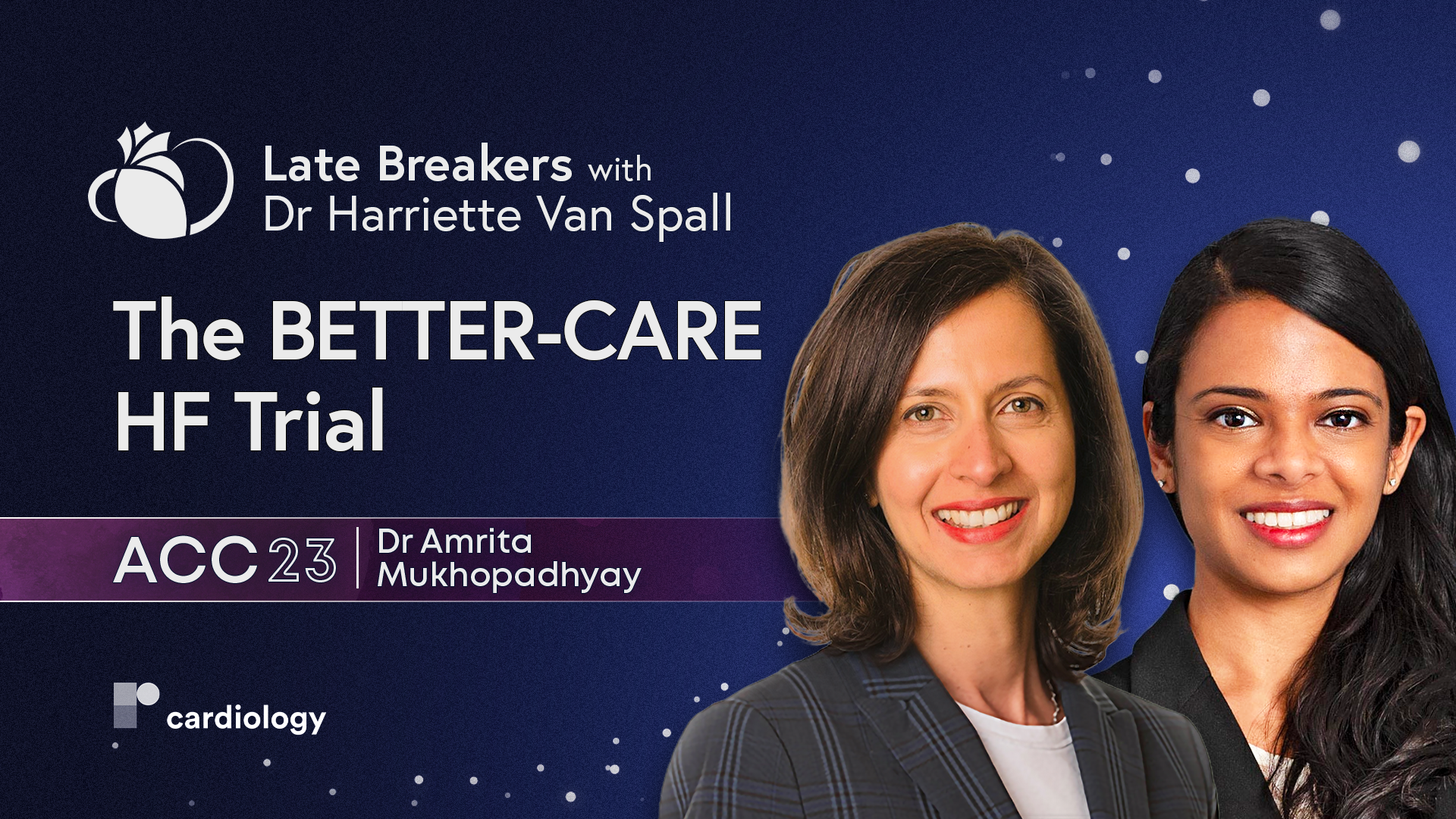 14m 3sPart 1 | Session 3 The BETTER-CARE HF Trial with Dr Harriette Van Spall & Dr Amrita Mukhopadhyay Amrita Mukhopadhyay, Harriette Van Spall
14m 3sPart 1 | Session 3 The BETTER-CARE HF Trial with Dr Harriette Van Spall & Dr Amrita Mukhopadhyay Amrita Mukhopadhyay, Harriette Van Spall
-
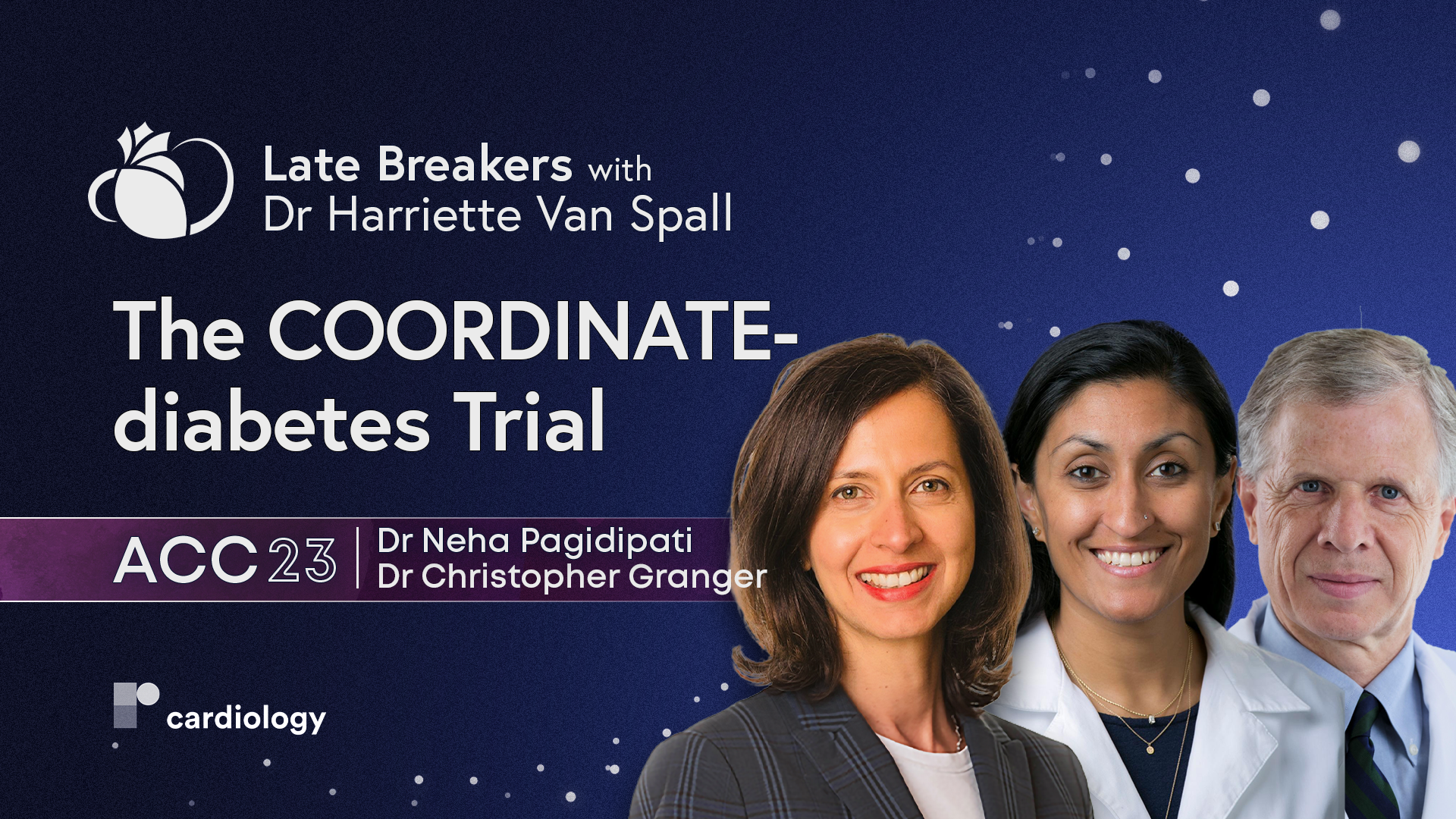 17m 32sPart 1 | Session 4 The COORDINATE-Diabetes Trial with Dr Harriette Van Spall, Dr Neha J Pagidipati & Dr Christopher B Granger Christopher B Granger, Harriette Van Spall, Neha Pagidipati
17m 32sPart 1 | Session 4 The COORDINATE-Diabetes Trial with Dr Harriette Van Spall, Dr Neha J Pagidipati & Dr Christopher B Granger Christopher B Granger, Harriette Van Spall, Neha Pagidipati
-
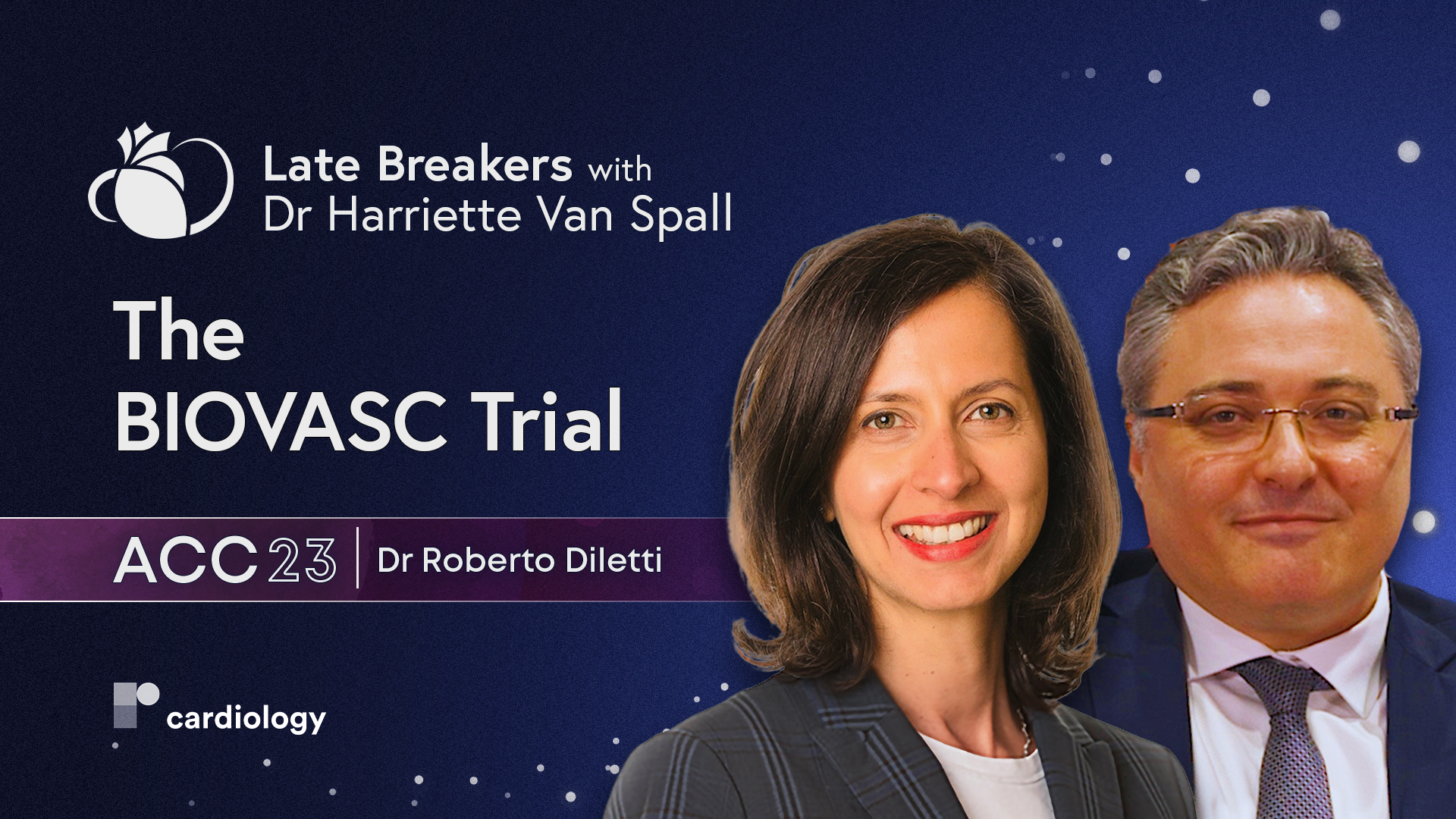 12m 7sPart 1 | Session 5 The BIOVASC Trial with Dr Harriette Van Spall & Prof Roberto Diletti Roberto Diletti, Harriette Van Spall
12m 7sPart 1 | Session 5 The BIOVASC Trial with Dr Harriette Van Spall & Prof Roberto Diletti Roberto Diletti, Harriette Van Spall
-
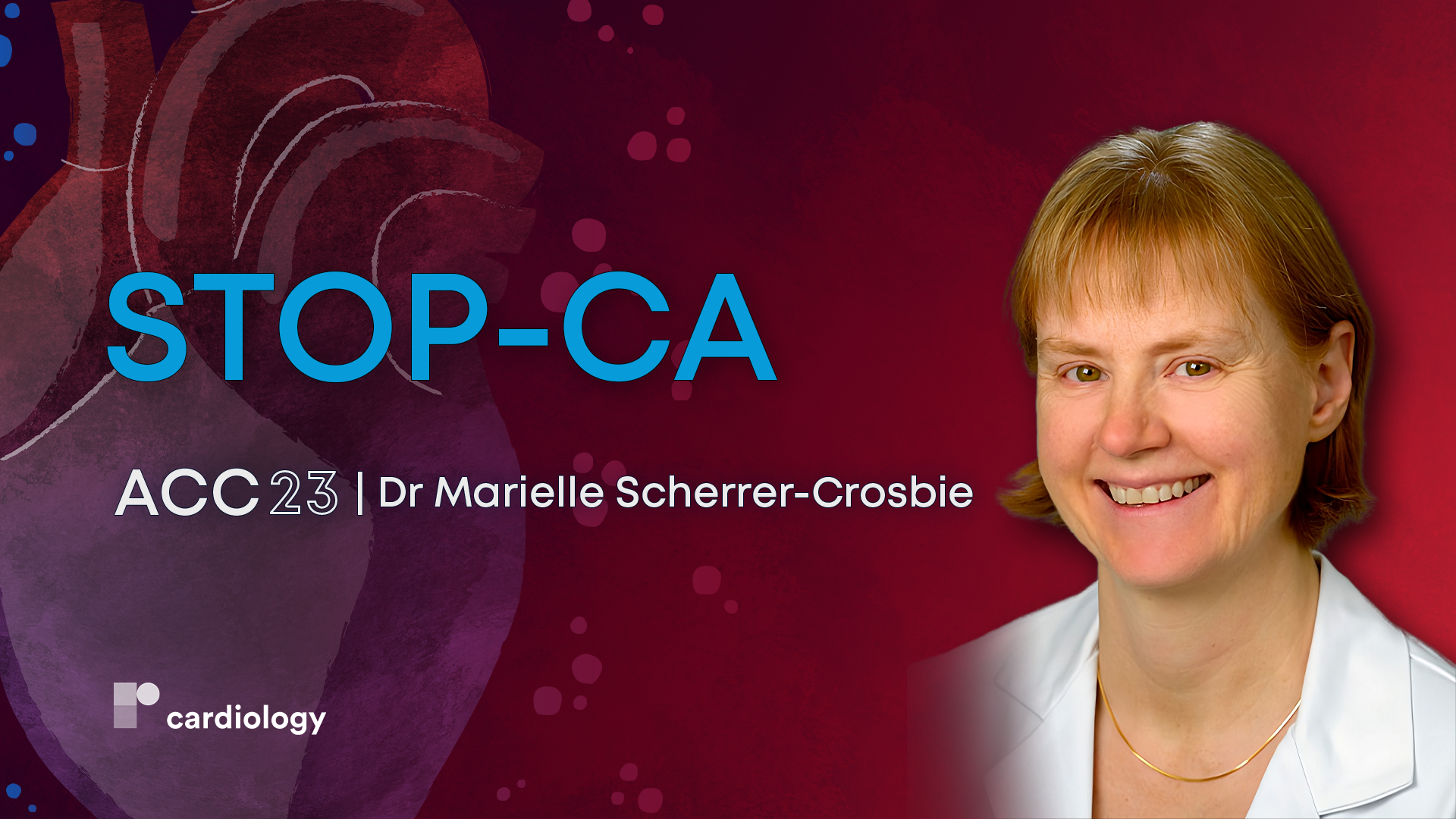 5m 59sPart 2 | Session 1 Statins to Protect Heart During Cancer Treatment: The STOP-CA Trial Marielle Scherrer-Crosbie
5m 59sPart 2 | Session 1 Statins to Protect Heart During Cancer Treatment: The STOP-CA Trial Marielle Scherrer-Crosbie
-
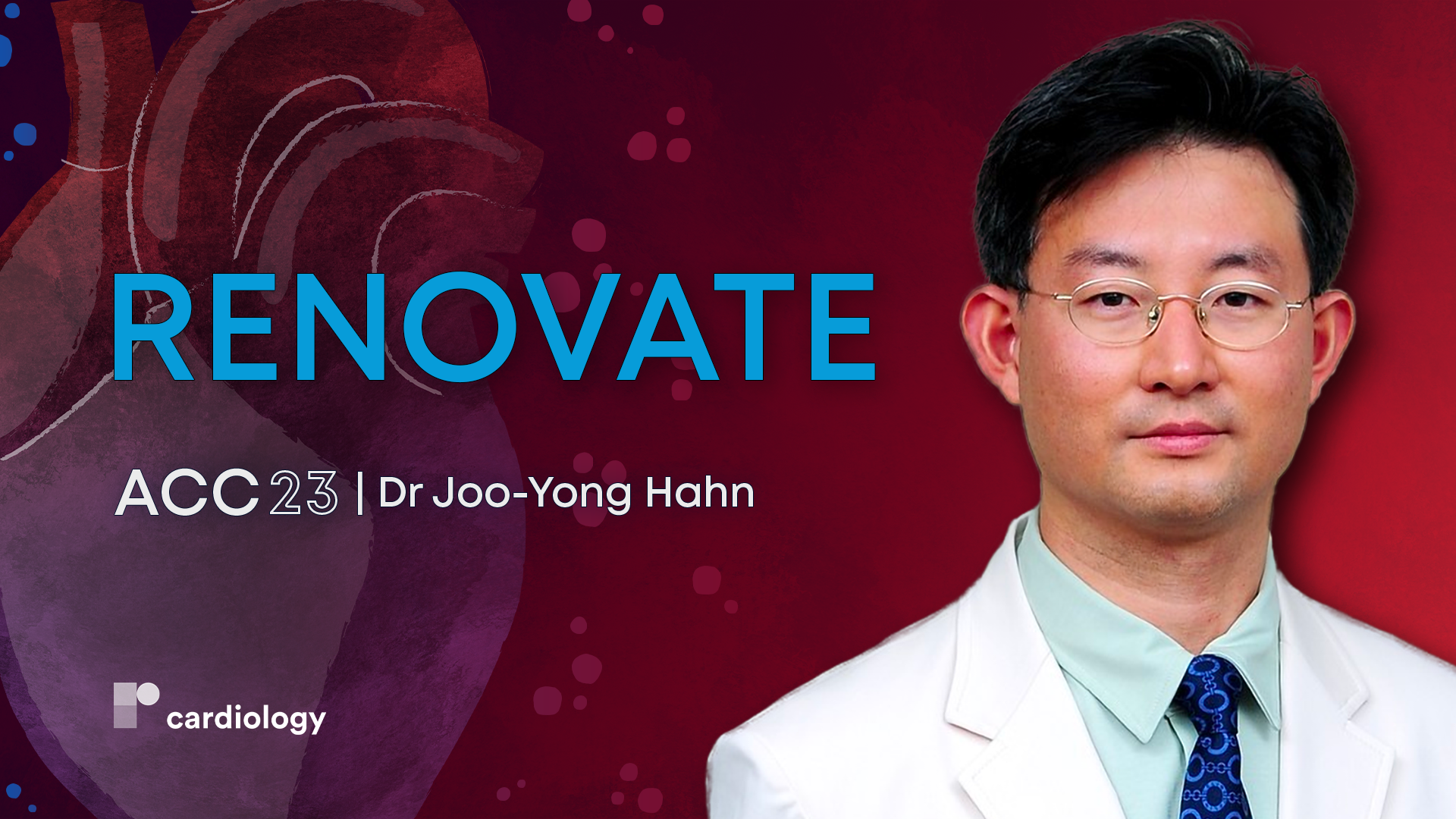 5m 38sPart 2 | Session 2 RENOVATE-COMPLEX-PCI: IVUS Vs OCT Optimisation in Complex PCI Joo-Yong Hahn
5m 38sPart 2 | Session 2 RENOVATE-COMPLEX-PCI: IVUS Vs OCT Optimisation in Complex PCI Joo-Yong Hahn
-
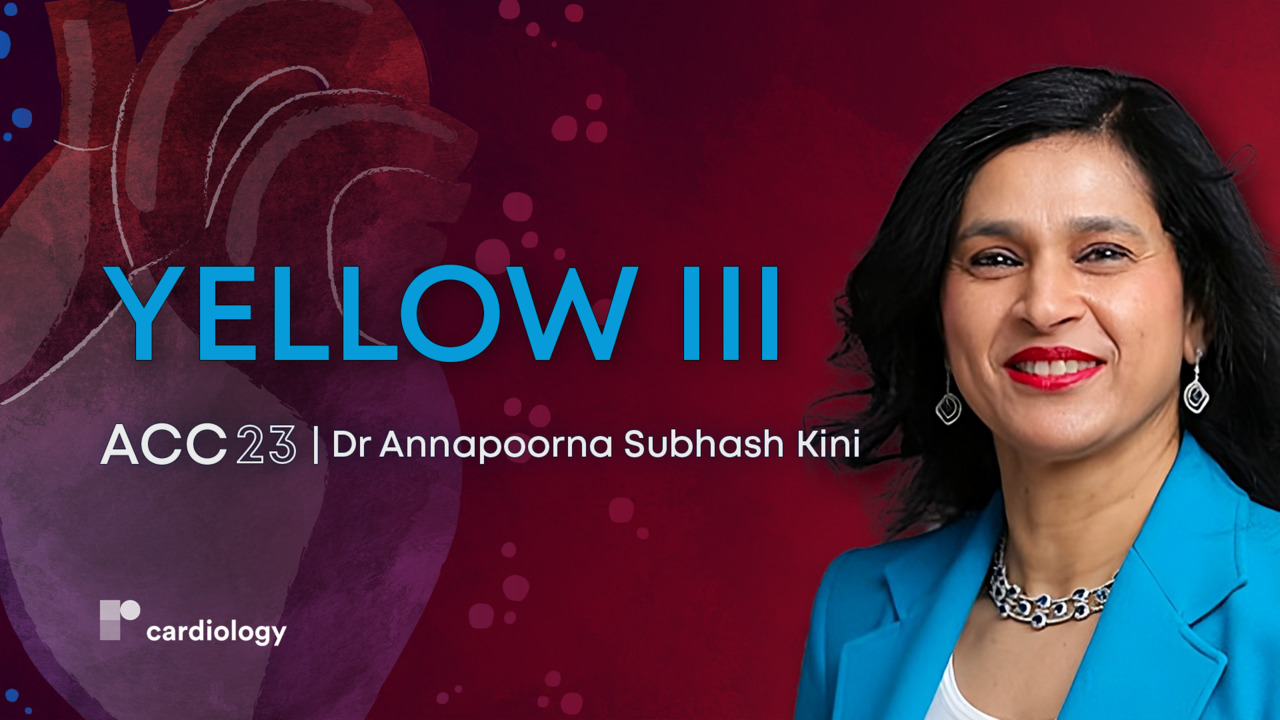 8m 1sPart 2 | Session 3 Effect of Evolocumab on Coronary Plaque Morphology: The YELLOW III Study Annapoorna Kini
8m 1sPart 2 | Session 3 Effect of Evolocumab on Coronary Plaque Morphology: The YELLOW III Study Annapoorna Kini
-
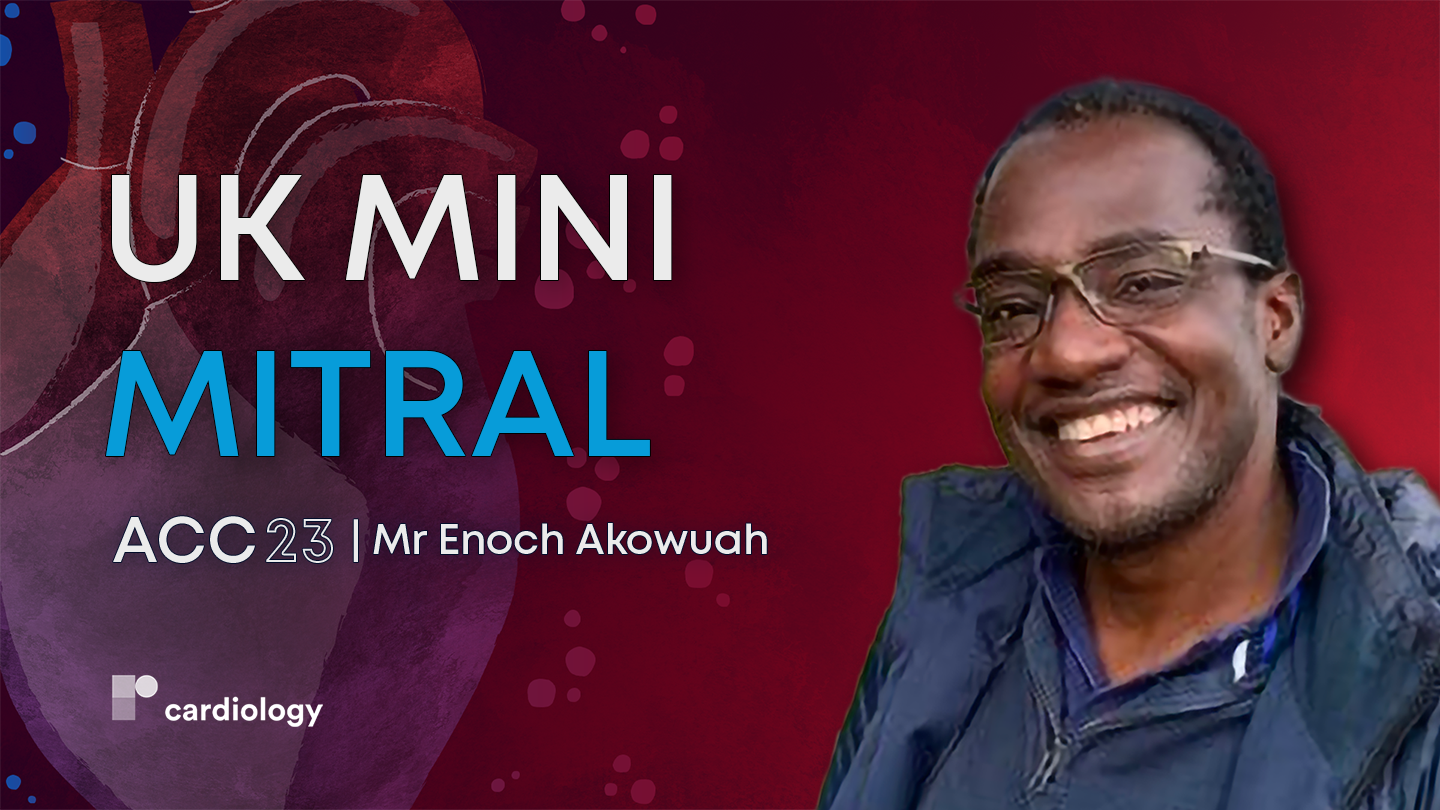 5m 41sPart 2 | Session 4 Mini-Thoracotomy Vs Sternoctomy for Degenerative Valve Disease: The UK Mini-Mitral Study Enoch Akowuah
5m 41sPart 2 | Session 4 Mini-Thoracotomy Vs Sternoctomy for Degenerative Valve Disease: The UK Mini-Mitral Study Enoch Akowuah
-
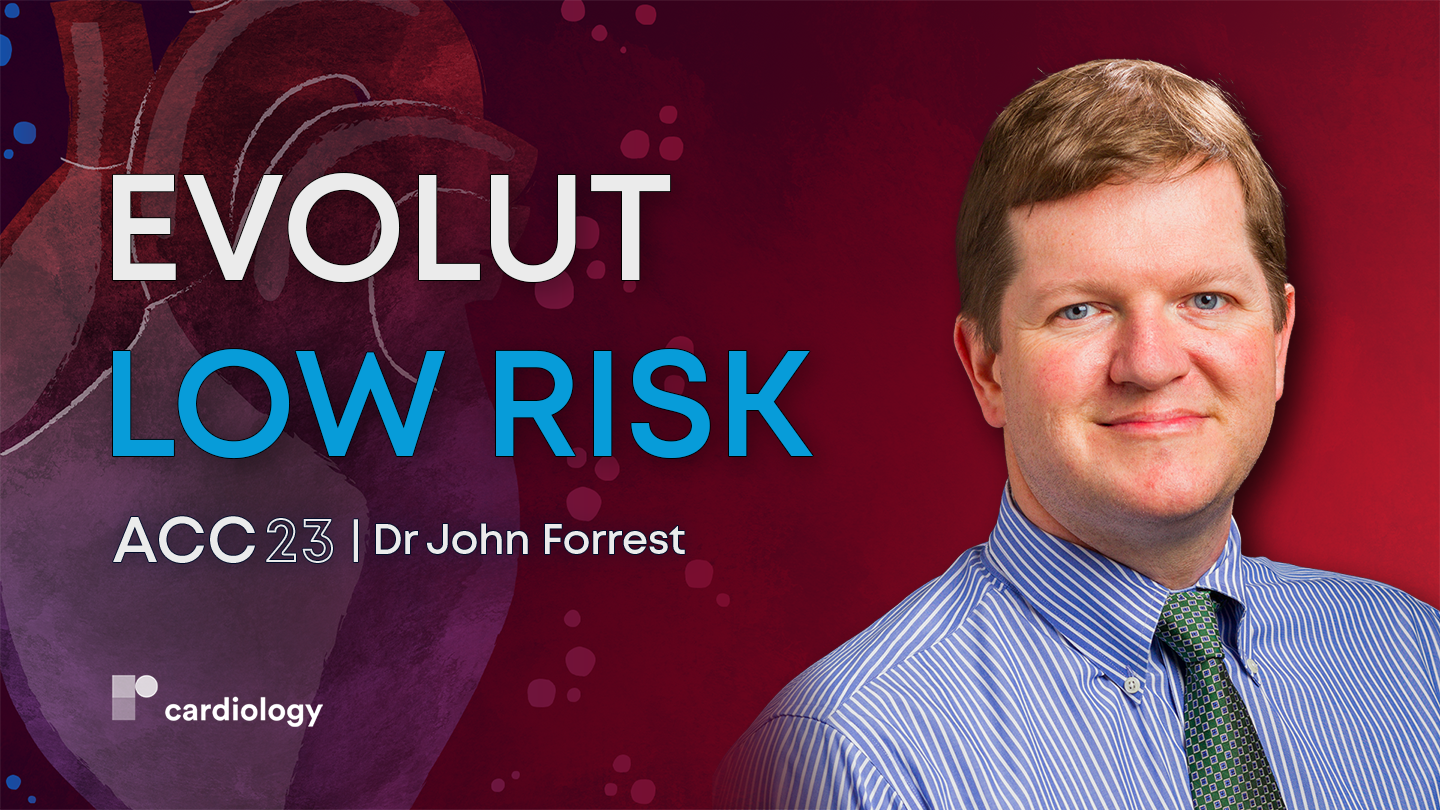 3m 46sPart 2 | Session 5 TAVR in Low-Risk Aortic Stenosis Patients: 3-Year Results From the Evolut Low Risk Trial John Forrest
3m 46sPart 2 | Session 5 TAVR in Low-Risk Aortic Stenosis Patients: 3-Year Results From the Evolut Low Risk Trial John Forrest
-
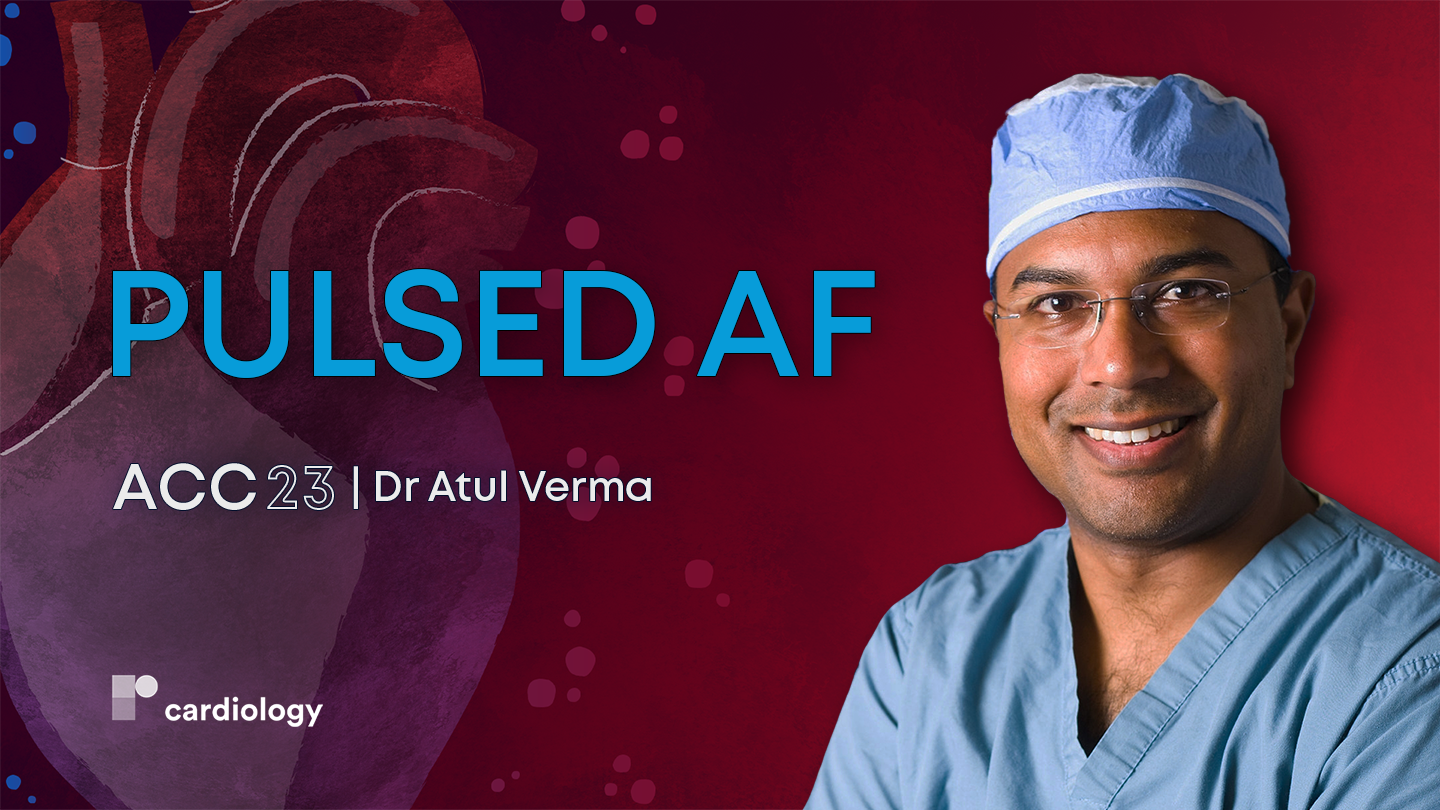 5m 53sPart 2 | Session 6 Pulsed Field Ablation in Persistent Atrial Fibrillation Patients: The PULSED AF Trial Atul Verma
5m 53sPart 2 | Session 6 Pulsed Field Ablation in Persistent Atrial Fibrillation Patients: The PULSED AF Trial Atul Verma
-
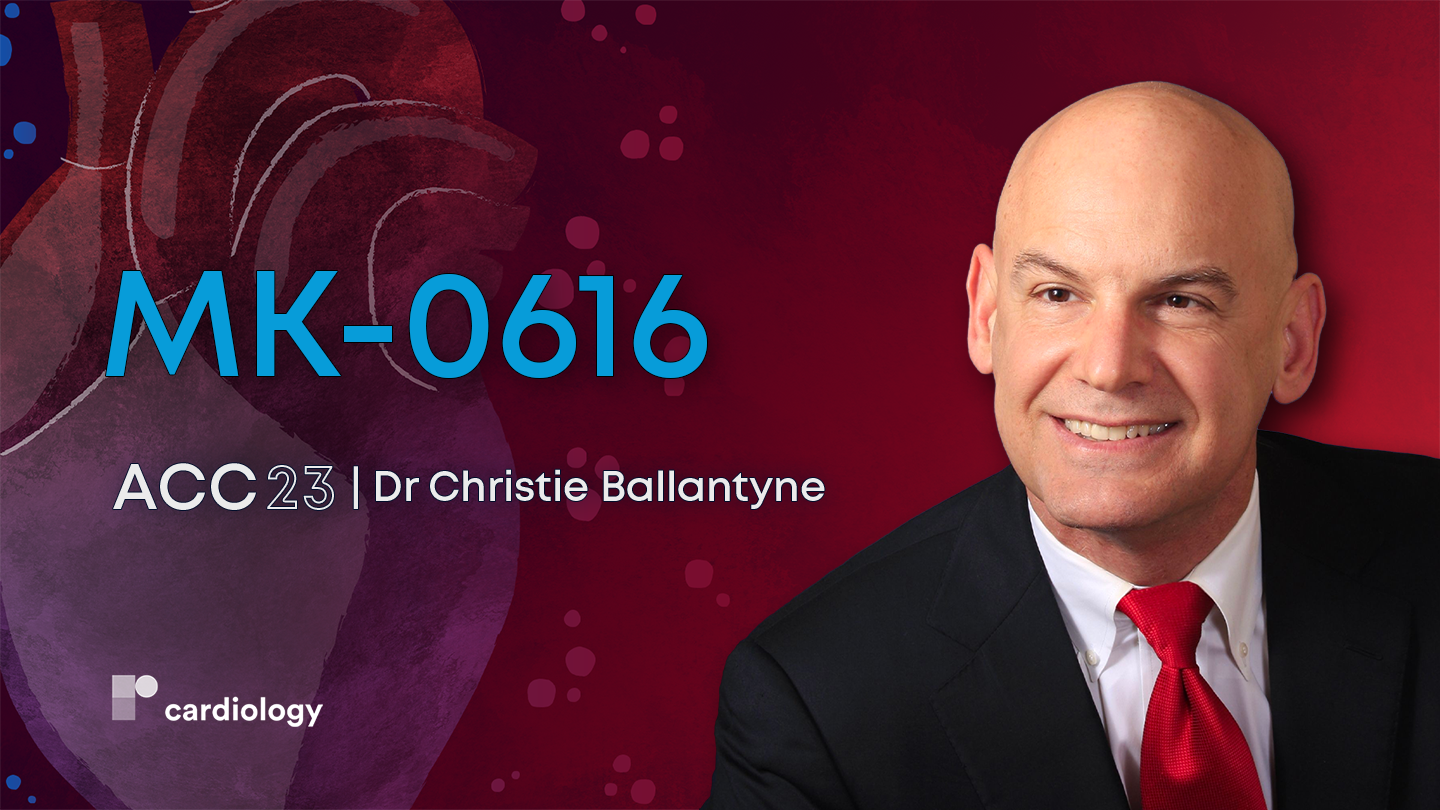 3m 44sPart 2 | Session 7 MK-0616: Oral PCSK9 inhibitor In Hypercholesterolemia Patients Christie Ballantyne
3m 44sPart 2 | Session 7 MK-0616: Oral PCSK9 inhibitor In Hypercholesterolemia Patients Christie Ballantyne
-
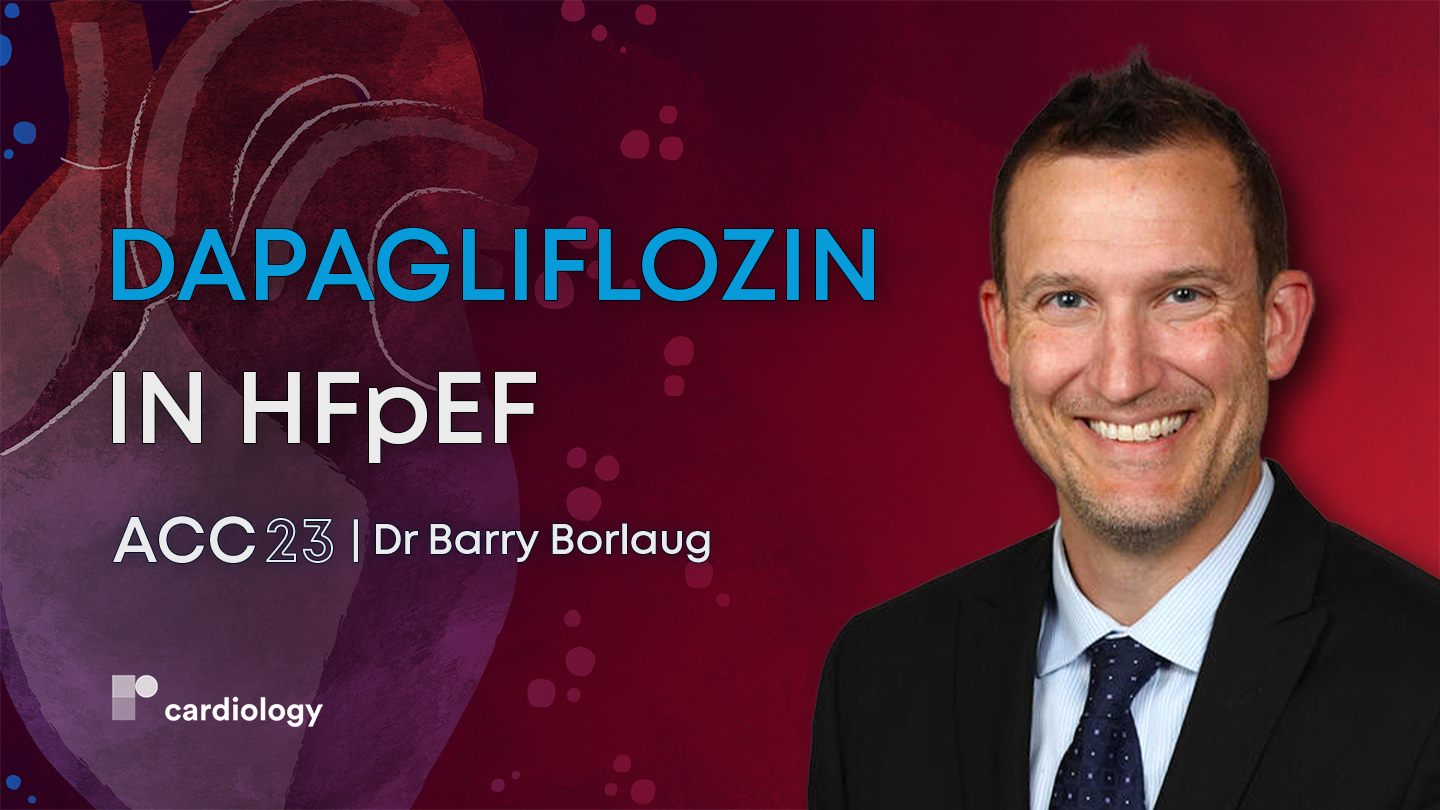 5m 21sPart 2 | Session 8 Evaluation of the Mechanism of Benefit for Dapagliflozin in HFpEF Barry Borlaug
5m 21sPart 2 | Session 8 Evaluation of the Mechanism of Benefit for Dapagliflozin in HFpEF Barry Borlaug
-
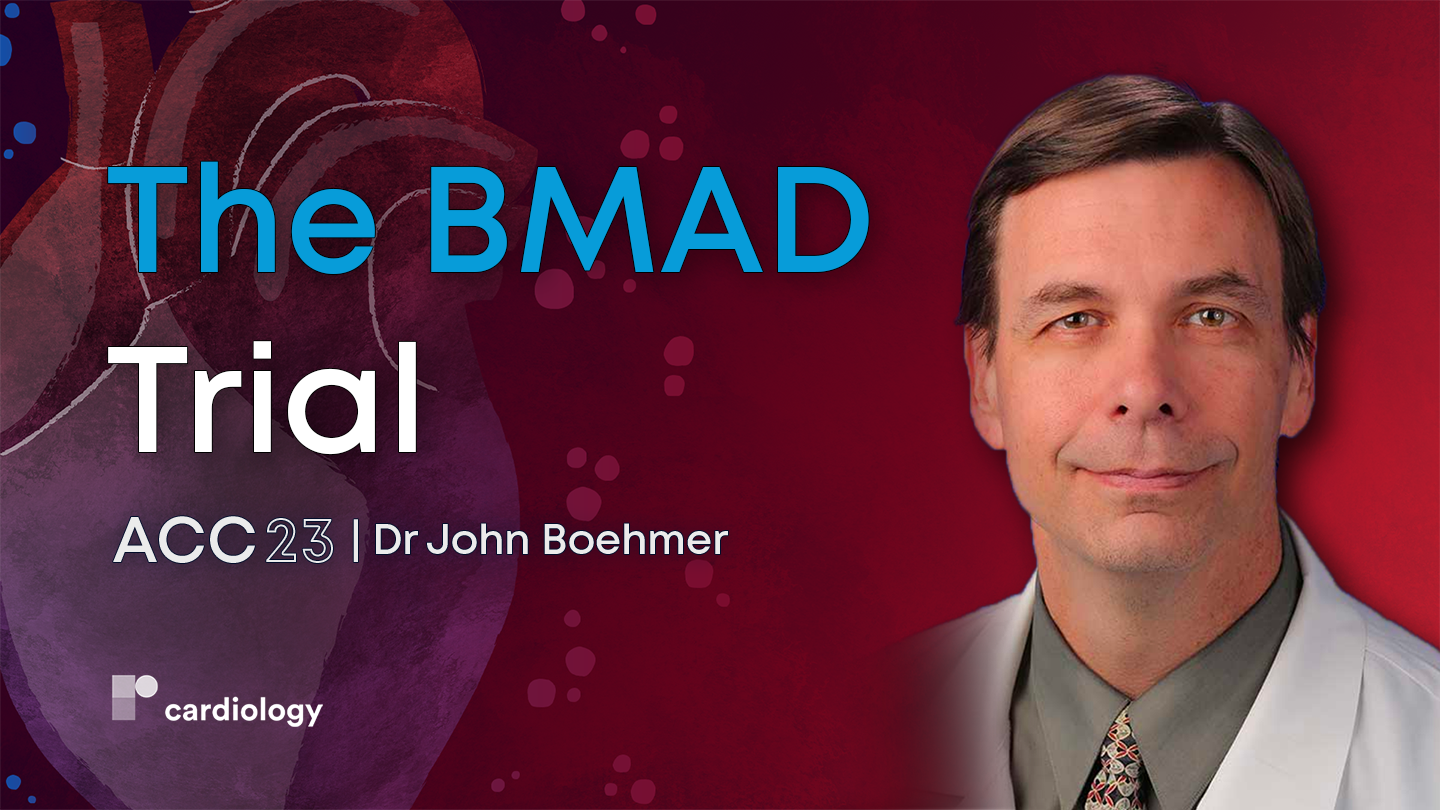 3m 7sPart 2 | Session 9 BMAD Trial: μCor in Ambulatory Decompensated Heart Failure John Boehmer
3m 7sPart 2 | Session 9 BMAD Trial: μCor in Ambulatory Decompensated Heart Failure John Boehmer
-
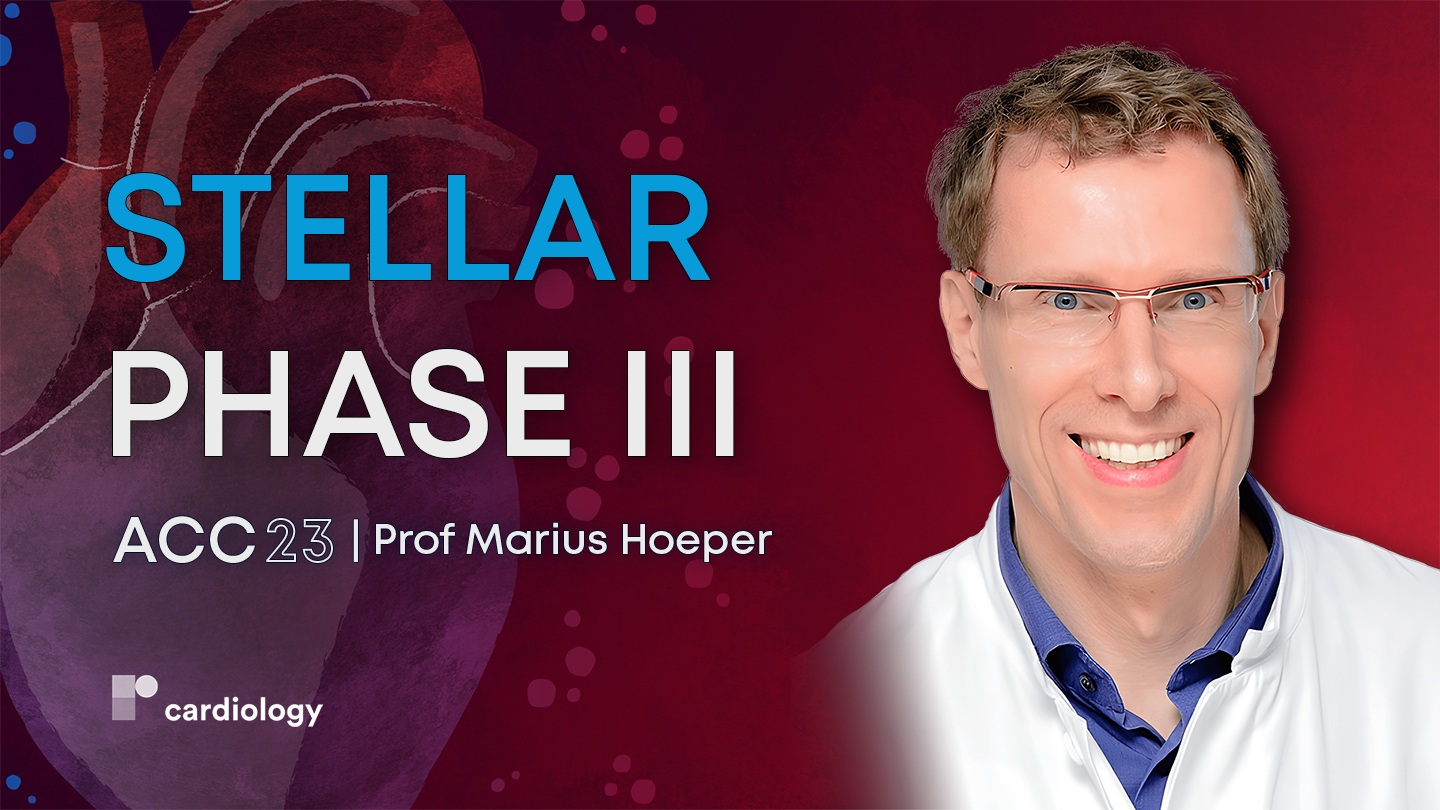 5m 44sPart 2 | Session 10 The STELLAR Phase II Trial: Sotatercept in Patients With Pulmonary Arterial Hypertension Marius Hoeper
5m 44sPart 2 | Session 10 The STELLAR Phase II Trial: Sotatercept in Patients With Pulmonary Arterial Hypertension Marius Hoeper
Overview
Our regular review series View from the Thoraxcenter, hosted by Prof Nicolas Van Mieghem and Dr Joost Daemen (Thoraxcentre, Erasmus MC, Rotterdam, NL) provides a critical analysis of the late-breaking and featured science results and spotlights impactful data.
For a deeper look into the key clinical trial data revealed at ACC 23, Dr Harriette Van Spall (McMaster University, Hamilton, CA) interviews the principal investigators in her regular Late-Breaker Discussion Series.
For short, concise coverage of the key data revealed, our accessible Expert Interviews were conducted with select faculty, focussing on the results, applicability and impact on future research.
More from this programme
Part 1
Late-Breaker Discussion Series
Host, Dr Harriette Van Spall is joined by principle investigators for discussion on selected late-breaking trials.
Part 2
Expert Interviews
Part 3
View from the Thoraxcenter
In these concise episodes of View from the Thoraxcenter, Prof Nicolas Van Mieghem and Dr Joost Daemen (Thoraxcentre, Erasmus MC, Rotterdam, NL) offer their thoughts on the top late-breaking trials that will be presented at ACC 2023.
Part 4
Highlights Reviews
Part 5
Behind the Heart
Watch our Behind the Heart series to learn more the personal perspectives from the investigators behind top trials in cardiovascular science.
About the episode
ACC.23/WCC - We are joined by Dr Paul Ridker (Brigham and Women’s Hospital, US) to discuss the findings from a collaborative analysis of 31,197 patients to assess inflammatory risk in statin-treated patients. The PROMINENT, REDUCE-IT and STRENGTH trials were each large contemporary trials which implemented guideline-directed medical therapy, the findings of which were pooled in this study. The aim of this study was to investigate the predictor of future cardiovascular events, cardiovascular deaths, and all-cause mortality.
Results suggest a small gradient of risk with LDL cholesterol but are higher in patients with elevated high-sensitivity C-reactive protein.
Questions:
- What is the reasoning behind this study?
- What was the patient population and study design?
- What are the main findings?
- How should these findings impact clinical practice and patient outcomes?
- What are the knowledge gaps, and what further study is required?
Recorded on-site at ACC 2023, New Orleans.
Faculty Biographies
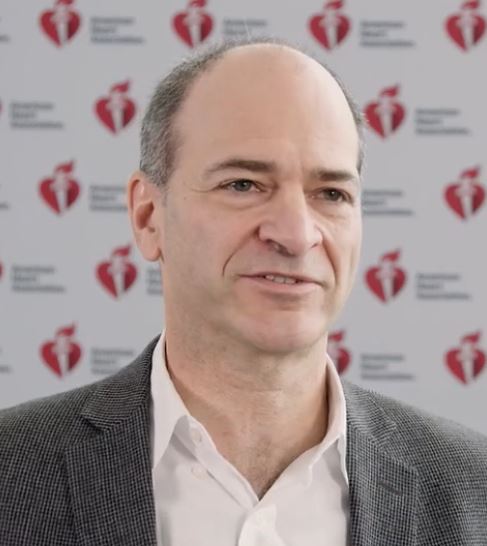
Paul M Ridker
Senior Physician, Brigham and Women's Hospital Eugene Braunwald Professor of Medicine, Harvard Medical School
Dr Paul M Ridker is director of the Center for Cardiovascular Disease Prevention, a translational research unit at Brigham and Women’s Hospital (BWH). A cardiovascular medicine specialist, he is also the Eugene Braunwald Professor of Medicine at Harvard School of Medicine (HMS).
Dr Ridker received his medical degree from HMS. He then completed an internal medicine residency and a cardiology fellowship at BWH. He has authored over 500 peer-reviewed publications, 150 reviews and book chapters, and five textbooks related to cardiovascular medicine. Dr Ridker’s primary research focus has involved inflammatory mediators of heart disease and the molecular and genetic epidemiology of hemostasis and thrombosis, with particular interests in biomarkers for coronary disease, “predictive” medicine, and the underlying causes and prevention of atherosclerotic disease.








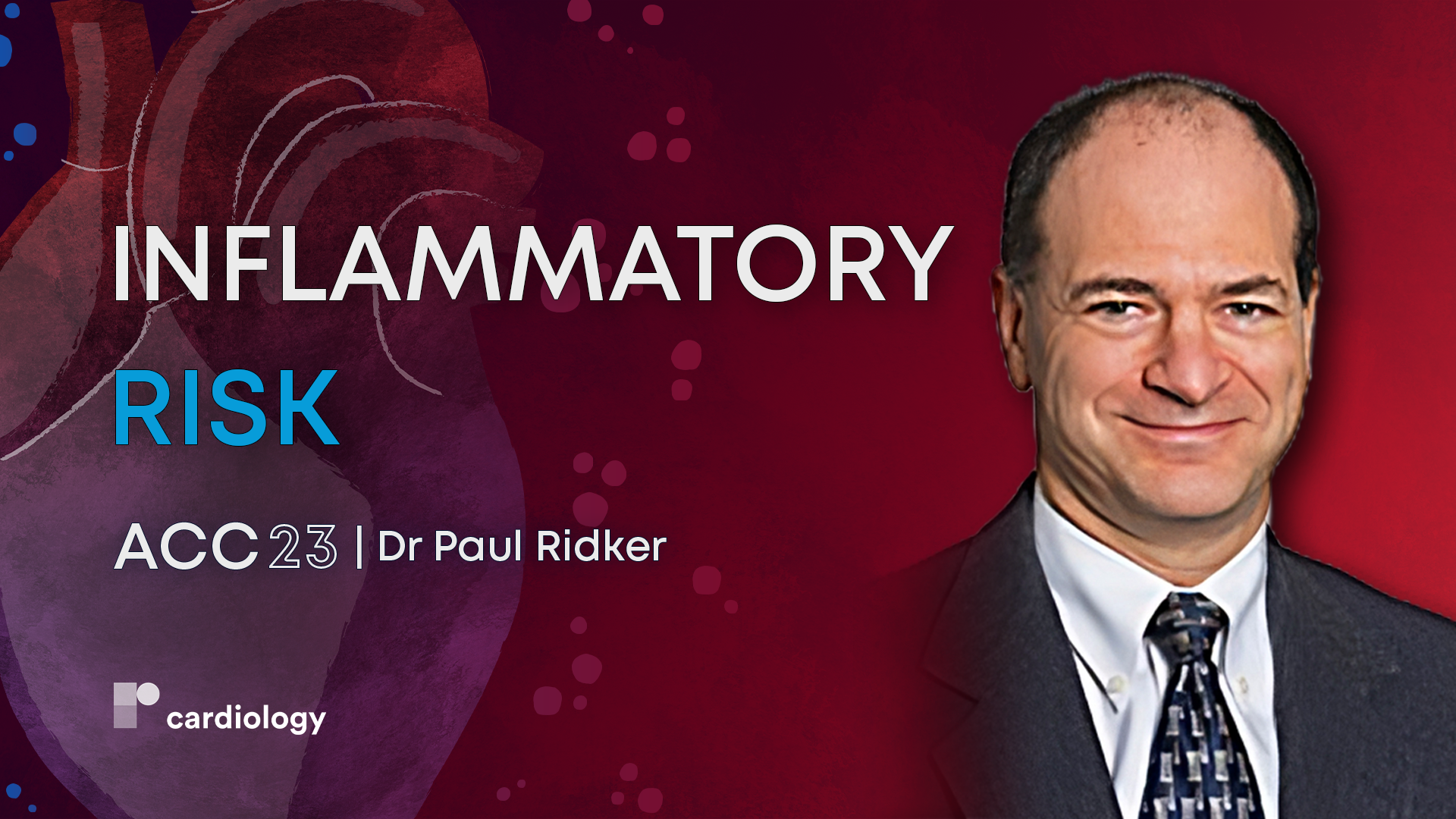
Comments